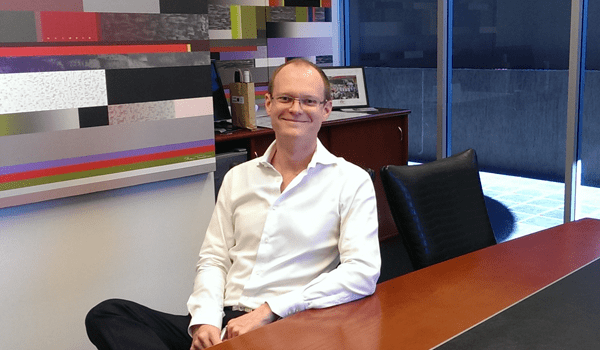After years spent helping other businesses grow, Aaron Zamykal wanted to start a venture where he could see his own product on a shelf.
Noticing an opportunity for success in China, Zamykal launched Slim Nation. The company produces liquid meals that aim to help people lose weight by replacing food.
Dynamic Business spoke to Zamykal about the challenges of running the new business.
Your background is completely removed from the food industry – what got you interested?
It’s essentially human behaviour and that’s something I’ve always been interested in, why people behave in certain ways. I also saw the opportunity in China, looking at the obesity epidemic that’s flooding through China at the moment. My wife and I travel to China every couple of months, so we saw that.
I also wanted to start a business that was easily scalable – coming from professional services, which is more difficult to scale up, I wanted to actually make a product and sell it on the shelf, and see people pick it up and buy it, because I’ve always sold things that don’t exist, like investment strategies and superannuation and insurance, all these things that are intangible and don’t physically exist. So it was exciting to create something that people could see and touch and taste, so that’s how the idea started.
What was the process behind creating the product?
I thought it was going to be easier than it was. Like anything, launching a new product is difficult, nearly nine out of ten fail but I thought I was going to be the one out of ten that was successful. It’s been a process of finding the right people, and I’ve employed the right people to assist me. I’m experienced at growing businesses and cash flow, financing, sales – that’s where my skills are – I’m not an expert in food or manufacturing, so I employed the best people in the market that I could find.
It’s been a process of trialling and sampling and finding the right manufacturers to put out a product that’s well received in the market, that tastes really good and brings good results. It was really trial and error, making sure we got the formulation right and that it was different to what was already out there.
Was there anything you thought would work that didn’t?
We did a lot of taste testing, so there were many changes made to get it right to something the market would embrace. In China, we’ve had to take the milk powder out of the product and do a soy-based, lactose-free product there because of their milk powder issues.
You have dieticians on board posting on your social media pages – was that always the plan?
We’re big on the social media because it’s not about sales, it’s more about the relationship. Our dieticians do all the Facebook posts, not a marketing firm, so anything to do with nutrition you can ask us and a registered dietician answers it.
We needed credibility. I thought we needed experts so I went out to find a team of dieticians. We also just signed a deal with the PA Hospital in Queensland, who have just taken our meal in a bottle product on, and we’re also using their dieticians to work on our next product. This is the first time they’ve been approached by a brand to be instrumental in developing a product.
Have you thought about bringing the product to developing countries?
It’s something I’m passionate about, and it’s on my radar. The issue is how to manufacture it cost effectively.
Did the growth in China follow your expectations?
I would say that it’s been in line with my expectations. In China, the relationships and building the networks are very important, and it takes time, but once it’s switched on it’s a million miles an hour, but the start is challenging. My wife is Chinese-Australian so I have a family connection with China. She speaks Mandarin, which is very handy and because I understand the culture and traditions, it’s been very valuable.

